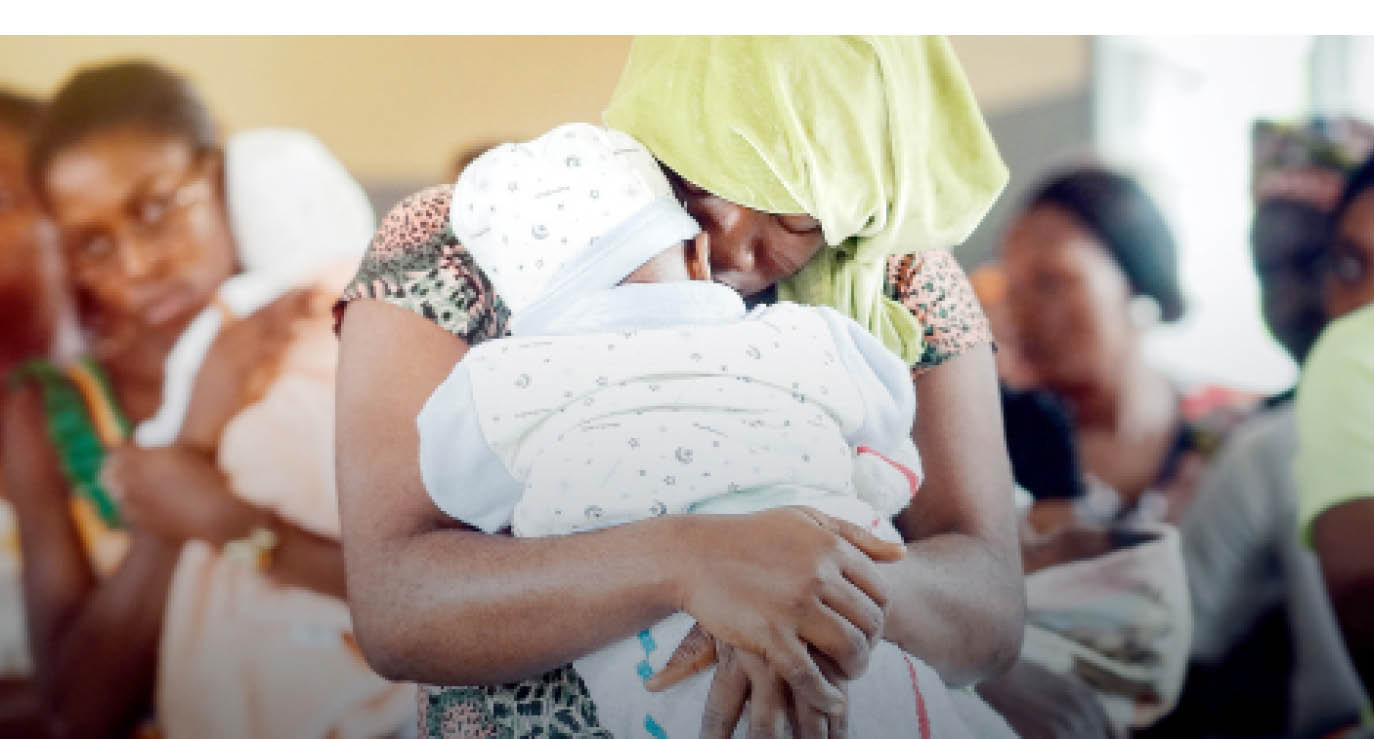Although Nigeria’s healthcare system is thriving, a unit that needs more focus is maternity care. Statistics show that a fair percentage of women still suffer when it comes to receiving maternal care, it’s either poorly available or at a high cost. Daily Trust reports.
It’s Mariam Isah’s first pregnancy. Apart from the bill she has been asked to pay for maternal care, she’s discouraged by the facilities and environment at the hospital. She said the beds were in poor shape, the ward itself wasn’t clean and mosquitoes filled the air, the doctors and nurses carried out their task with a nonchalant attitude.
This is the plight of many women who have no choice but to receive maternal care at designated public health centres. The process is never smooth or easy as compared to those who receive their care at private hospitals.
According to statistics from the World Health Organisation (WHO), Nigeria contributes at least 20 percent to maternal deaths on a global scale. Between 2005 and 2015, it is estimated that over 600,000 maternal deaths and no less than 900,000 maternal near-miss cases occurred in the country.
The WHO also revealed that there’s a link between increasing number of maternal death and the lack of fairness in access to health services. This also highlights the gap between those in wealth and poverty. It explains that poor women in rural areas are the least likely to receive proper healthcare due to lack of skilled health workers.
Grace Nsa said the hospital in Calabar where she had registered for maternal care did not treat her as if they had regard for life. She said “so many times I went for my check up, it’s either the doctor wasn’t around or I had wait for my file to be found first.”
She noted that “Because it was a community health centre, everything was affordable. I paid a total sum of N80,000 which covered my ante-natal classes, check-ups and tests that I had to carry out.”
Grace explains that the hospital in question was of close proximity to her house so getting there on days she needed to didn’t prove difficult. “My husband would drop me on some days while on others, I would use a taxi which would cost me a total of N1000 for a round trip.”
According to Grace, the hospital was set up with the basic amenities and facilities needed to run the clinic. However, she recalls that the hospital dispensary was always short on drugs and she would always have to get them from another pharmacy.
“The way patients were treated before was close to inhumane. There were never drugs at the hospital, and there was always a queue of pregnant women waiting for a no-show doctor to attend to them. Even when you ask the nurses, they would react as if it’s none of their business,” she said.
Another lady who identified herself as Halima Ahmed told Daily Trust on Sunday that although expensive, she was glad to have been able to give birth in a private hospital in Lagos.
She mentioned that; “The hospital charged N300,000 for antenatal services. I was scheduled for monthly check-ups for which I paid N30,000 consultation fee and N70,000 for tests. Regardless my total bill ran into N1.7m.”
Halima stated that the quality of the services given to her at the hospital was of top-notch standard. She explained that “You would see the value for your money in the way you’re been treated. Everything I asked for and needed was provided for me.”
“Because of the care given to me by my doctor, I was advised to go for a caesarean section because of my high blood pressure. It was monitored the whole time till I gave birth.”
Lilian Ibili who has received maternal care from both public and private hospitals revealed that the care system at the public hospitals was just fair compared to the private ones.
She explained that; “At the General hospital where I started my antenatal class, maternal care and delivery was free but you’d have to buy your own birthing items which could cost nothing more than N100,000.”
“At my second hospital, I had to re-register for antenatal there. Doing that and also paying for a new birthing kit cost me N30,000. N10,000 for registration and N20,000 for the birthing kit,” she added.
“Although I didn’t expect much because it was a General hospital, the quality of their service was fair. They even tried their best to give birthing classes but the hall was hot and very uncomfortable for a pregnant woman.”
“However, at the private hospital, it was different. Right from when I registered, they checked my glucose level and noticed it was high. Venue of the antenatal classes was built to standard and made comfortable.”
She also noted that “At the general hospital, I had to pay for every drug and had little or no access to a doctor as I wasn’t termed “doctor’s patient”. Midwifes and nurses were readily available. At the private hospital, after the payment I made for registration, I didn’t make any other payment. Every medication was given to me and added to my total bill, I also had access to all the doctors and nurses.”
While speaking on the standard of maternal care within Nigeria, Lillian stated that; “Antenatal care is fairly okay but could be better especially for the public sector where the nurses can be rude and aggressive, especially to non-first-time mothers.”
“Post-natal care on the other hand doesn’t exist in Nigeria. The moment a woman gives birth, especially virginal birth, they focus on the child and forget the mother who might be experiencing pain or possibly post-partum depression,” she added.
Consultant gynaecologist at the University of Abuja Teaching, Dr Nathaniel Adewole, who commented on the issue, said with the level of poverty in the country, maternal care was not affordable to the common woman.
He also explained the connection between maternal mortality and proper maternal care; “Antenatal care and delivery under the supervision of qualified skilled medical personnel reduces maternal mortality. Antenatal helps to prevent and identify complications of pregnancy at an early stage and also manage it. Delivery without supervision can be catastrophic,” he said.
Adewole, who said the country was lacking professionals in the maternal care unit, noted that for maternal care to be improved in the country, more skilled personnel need to be employed, medical personnel need to be motivated to stay in the rural and suburban areas, more health facilities need to be constructed in the rural areas, there should be increased funding to manage these facilities and also combatting fake drugs and substandard equipment.

 Join Daily Trust WhatsApp Community For Quick Access To News and Happenings Around You.
Join Daily Trust WhatsApp Community For Quick Access To News and Happenings Around You.


